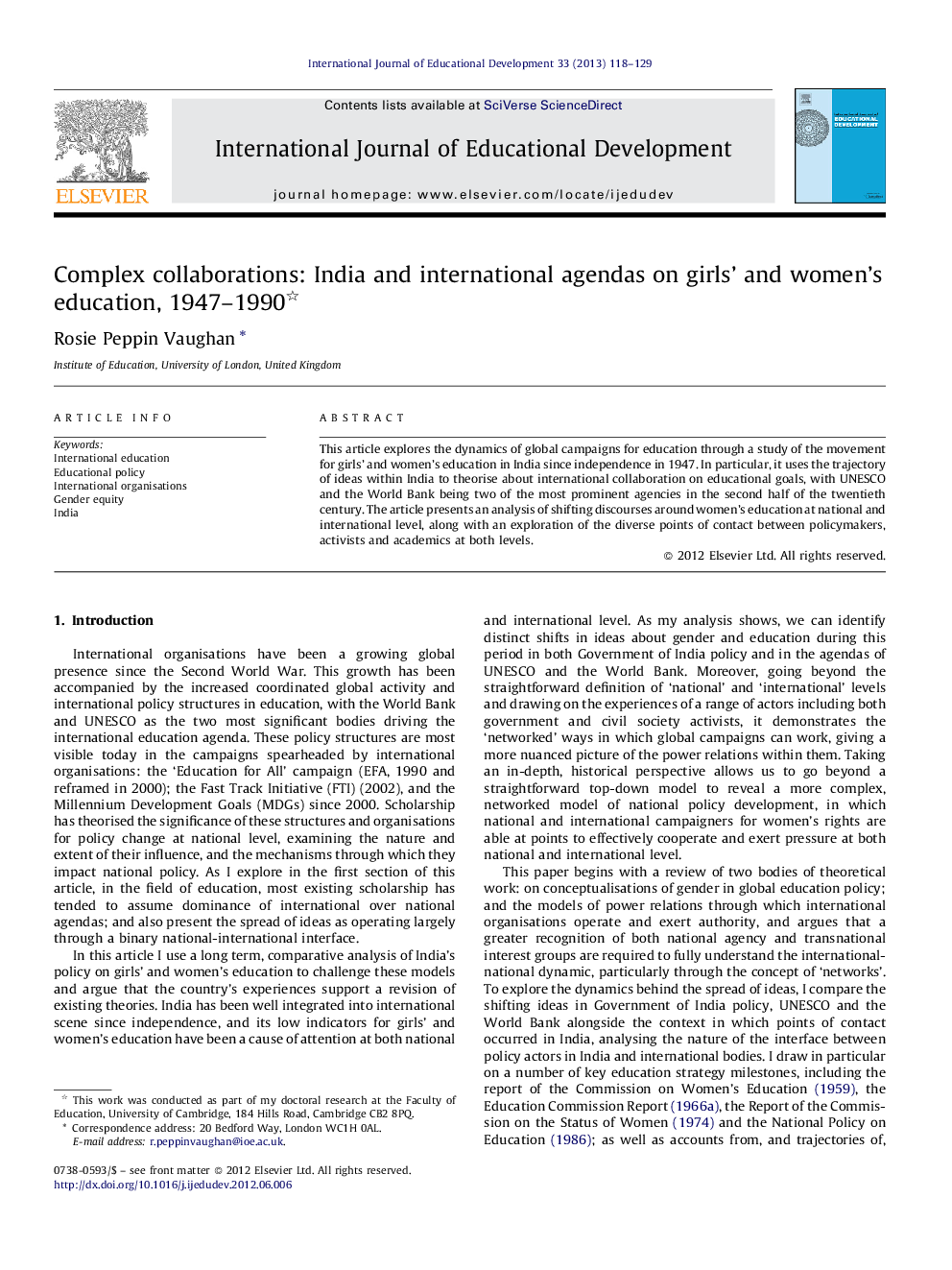| Article ID | Journal | Published Year | Pages | File Type |
|---|---|---|---|---|
| 356220 | International Journal of Educational Development | 2013 | 12 Pages |
This article explores the dynamics of global campaigns for education through a study of the movement for girls’ and women's education in India since independence in 1947. In particular, it uses the trajectory of ideas within India to theorise about international collaboration on educational goals, with UNESCO and the World Bank being two of the most prominent agencies in the second half of the twentieth century. The article presents an analysis of shifting discourses around women's education at national and international level, along with an exploration of the diverse points of contact between policymakers, activists and academics at both levels.
► Gender education policy shifts in India in the 1980s and 1990s were not externally imposed. ► Policy shifts were the result of the dovetailing of diverse international and national agendas. ► Indian women's campaigners put forward their own, critical perspectives on education at the UN. ► The study suggests a ‘networked’, flexible and contingent model of international collaboration.
